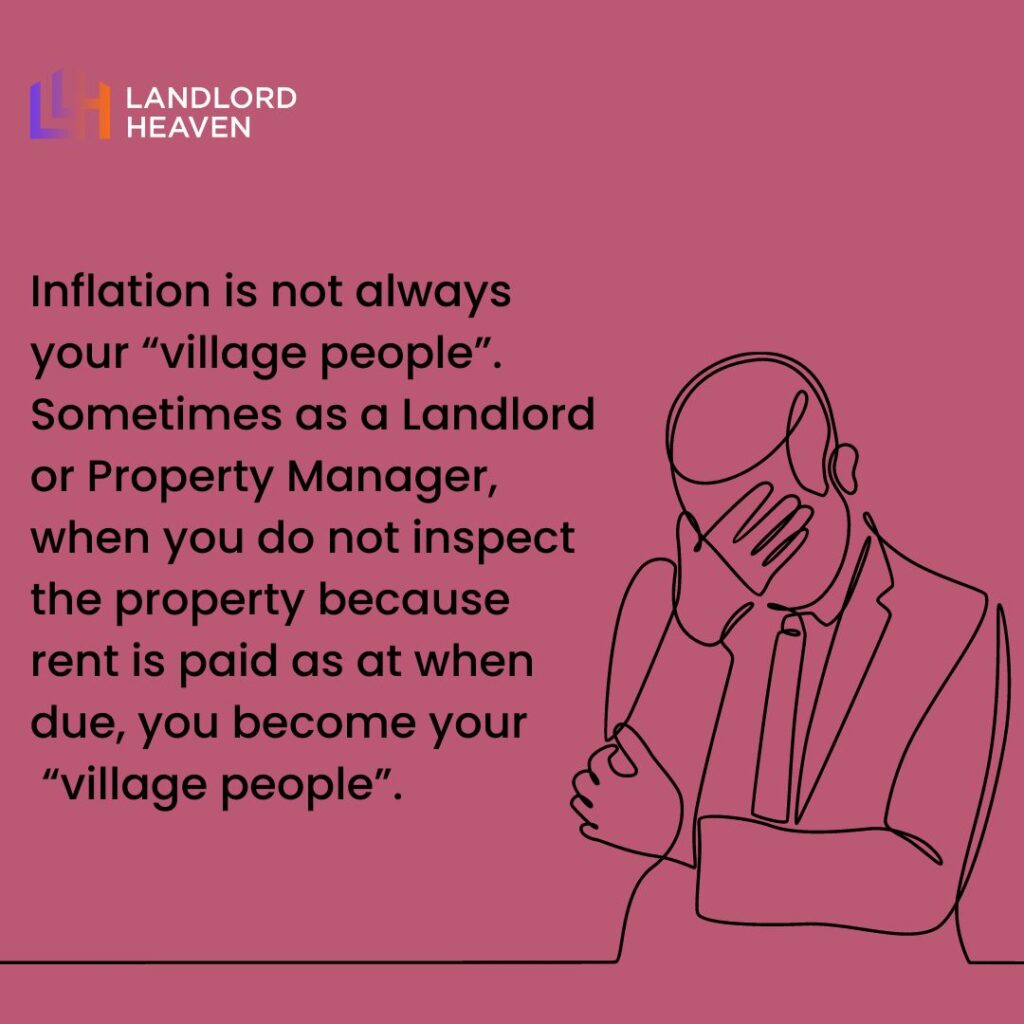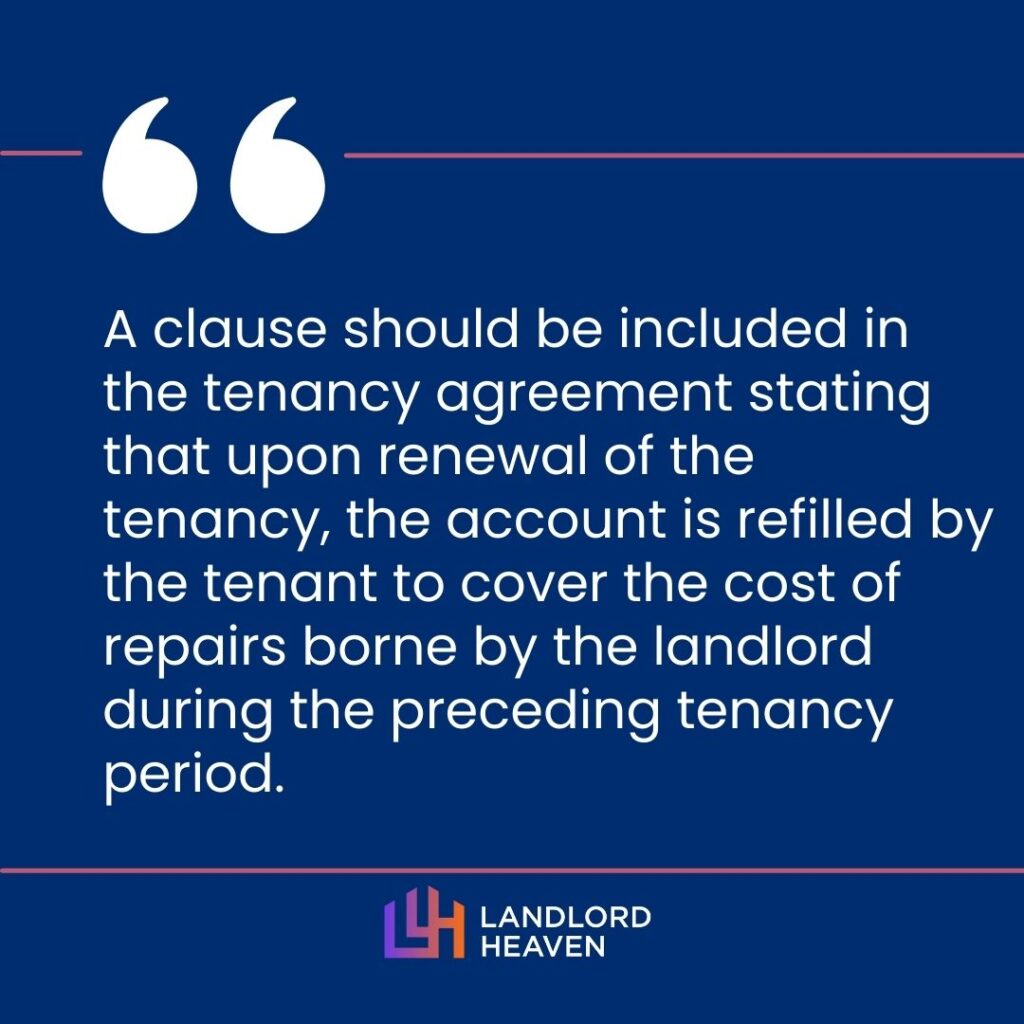In Part I, we discussed the issue of “Property Management by Non-Professionals” as a financial mistake landlords make. In Part 2, we will focus on the mismanagement of caution fees, also known as “additional rent,” by some landlords.
One common financial mistake that landlords make is mishandling caution fees. Caution fees are security deposits made by tenants to protect the landlord against damages and other issues that may arise, such as unpaid rent and property damage. Firstly, damages caused by wear and tear of the property are a normal part of property usage. Some common examples of wear and tear include broken door handles, leaky ceilings, and faulty fittings. However, some tenants engage in more extreme actions that result in damages, such as:
- Subletting without consent (short-term rentals)
- Using the property for home-based businesses (office, studio, or workshop)
- Converting the property into an art or musical studio (sound permeates through the walls and over time causes damage)
- Hosting community events that lead to overcrowding
- Allowing too many people to reside in the property without permission
Spending caution fees as a landlord is a bad practice, and the current management of these fees is not optimal. Here’s why:
1. Long-term loss exceeds 10% of annual rent paid
Some landlords collect caution fees (usually 10% of the annual rent) as part of the rent and spend it without any intention of returning it to the tenant or fixing repairs. When tenants become aware of this practice, they may become nonchalant towards property usage, as they realize that maintenance of the property does not guarantee a refund at the end.

In some cases, renovating a rental unit after a tenant moves out can cost up to 200% of the annual rent. This discourages landlords from continuing to rent out their properties and can lead to buildings becoming abandoned. Allowing the next tenant to fix damages caused by the former tenant only extends the impact of damage to the property over time.
2. You do not save by delaying repairs – inflation will catch up with you

Waiting until the tenant leaves before addressing repairs can result in spending up to 4 times the initial cost. Inflation is not the “village people” here, you are. In many cases, landlords and their property managers do not inspect the property because rent is paid as at when due, and as such cannot ascertain the extent of damage occurring. On the other hand, some landlords completely ignore maintenance responsibilities, which leaves the current tenant dissatisfied and the property in further disrepair. For example, a plumbing issue left unfixed will lead to more damages in the building’s walls over time. A good Property Management firm like Landlord Heaven ensures prompt repairs for damages on rental properties through our property upgrade finance available to landlords.
3. Creates potential landlord-tenant disputes

The responsibility of property maintenance can create problems. Tenants may expect that certain amenities are maintained by the landlord, while the landlord disagrees, as they have not set aside funds for such purposes. The solution to this is for landlords to set money aside for repairs in a separate or third-party account and not leave repairs to tenants. Additionally, a clause should be included in the tenancy agreement stating that upon renewal of the tenancy, the account is refilled by the tenant to cover the cost of repairs borne by the landlord during the preceding tenancy period.
4. Property devaluation is real
When tenants are left to change fittings and handle repairs, there is a higher likelihood of introducing substandard materials to the property, resulting in the devaluation of its value overtime.
At Landlord Heaven [LLH], we have created a Legacy Protection Service designed to help landlords maintain their property and pass on value to future generations. Our solution includes finding the right tenants, conducting quarterly inspections, implementing quick fixes to hedge against inflation, annually refilling caution fees, and much more. We believe that by providing this service, we can help landlords avoid financial mistakes and protect their legacy for years to come. We were recently recognized as one of the “20 African Startups to Watch in 2023” by Jeune Afrique, which serves as a testament to the effectiveness of our solutions and the work we carry out with landlords in Nigeria.
Signup to the peace of mind you deserve as a Landlord here.


Leave a Reply